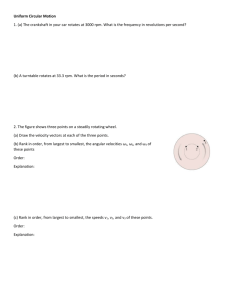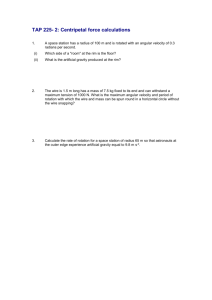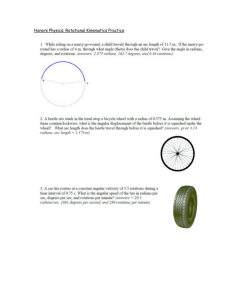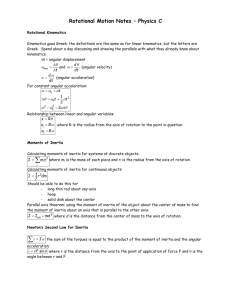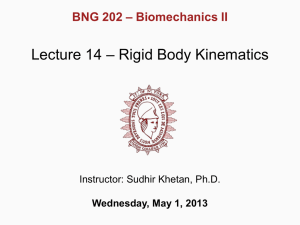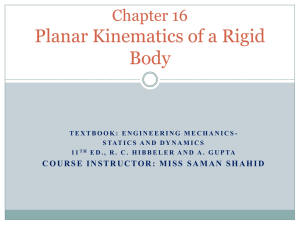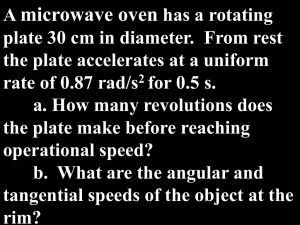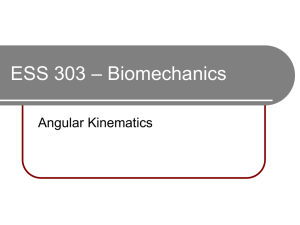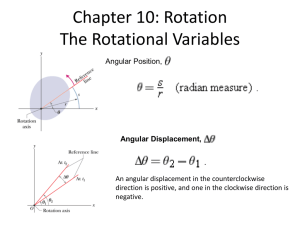Rigid-Body Mechanics
advertisement
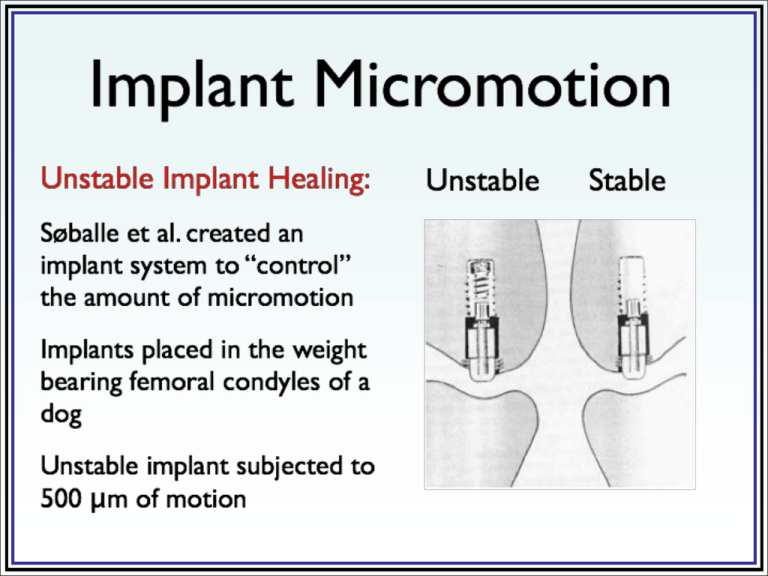
Particle vs. Rigid-Body Mechanics • What is the difference between particle and rigid-body mechanics? – Rigid-body can be of any shape particle • Block • Disc/wheel • Bar/member • Etc. • Can determine motion of any single particle (pt) in body Rigid-body (continuum of particles) Types of Rigid-Body Motion • Kinematically speaking… B – Translation A • Orientation of AB constant – Rotation B • All particles rotate about fixed axis – General Plane Motion (both) A B • Combination of both types of motion A B A Kinematics of Translation • Kinematics – Position rB rA rB / A y B A rB rA – Velocity vB v A – Acceleration aB aA • True for all points in R.B. (follows particle kinematics) x Rotation about a Fixed Axis – Angular Motion • Point P travels in circular path (whether “disk” or not) • Angular motion – Angular position, θ – Angular displacement, dθ • Angular velocity ω=dθ/dt • Angular Acceleration – α=dω/dt r Axis of rotation Rotation about a Fixed Axis – Angular Motion • Point P travels in circular path (whether “disk” or not) • Angular motion – Angular position, θ – Angular displacement, dθ • Angular velocity ω=dθ/dt • Angular Acceleration – α=dω/dt r • Angular motion Equations Axis of rotation In solving problems, once know ω & α, we can get velocity and acceleration of any point on body!!! (next slide) (Or can relate the two types of motion if ω & α unknown ) Rotation about a Fixed Axis – Motion of Point • Point P travels in circular path • Position of P – Defined by r • If body rotates some dθ, then displacement is ds = r dθ – Velocity (tangent to path) r an v ∆v a v r v r – Acceleration (2 components) ∆v an a at an v v2 an 2r r at r a at an r 2r Example Problem When the gear rotates 20 revolutions, it achieves an angular velocity of ω = 30 rad/s, starting from rest. Determine its constant angular acceleration and the time required. (F16-1, 3.58 rad/s2, 8.38 s) Example Problem The gear A on the drive shaft of the outboard motor has a radius of rA = 0.5 in and the meshed pinion gear B on the propeller shaft has a radius rB = 1.2 in. Determine the angular velocity of the popular in t = 1.5 s, if the drive shaft rotates with an angular acceleration = (400t3) rad/s2 , where t is in seconds. The propeller is originally at rest and the motor frame does not move.
